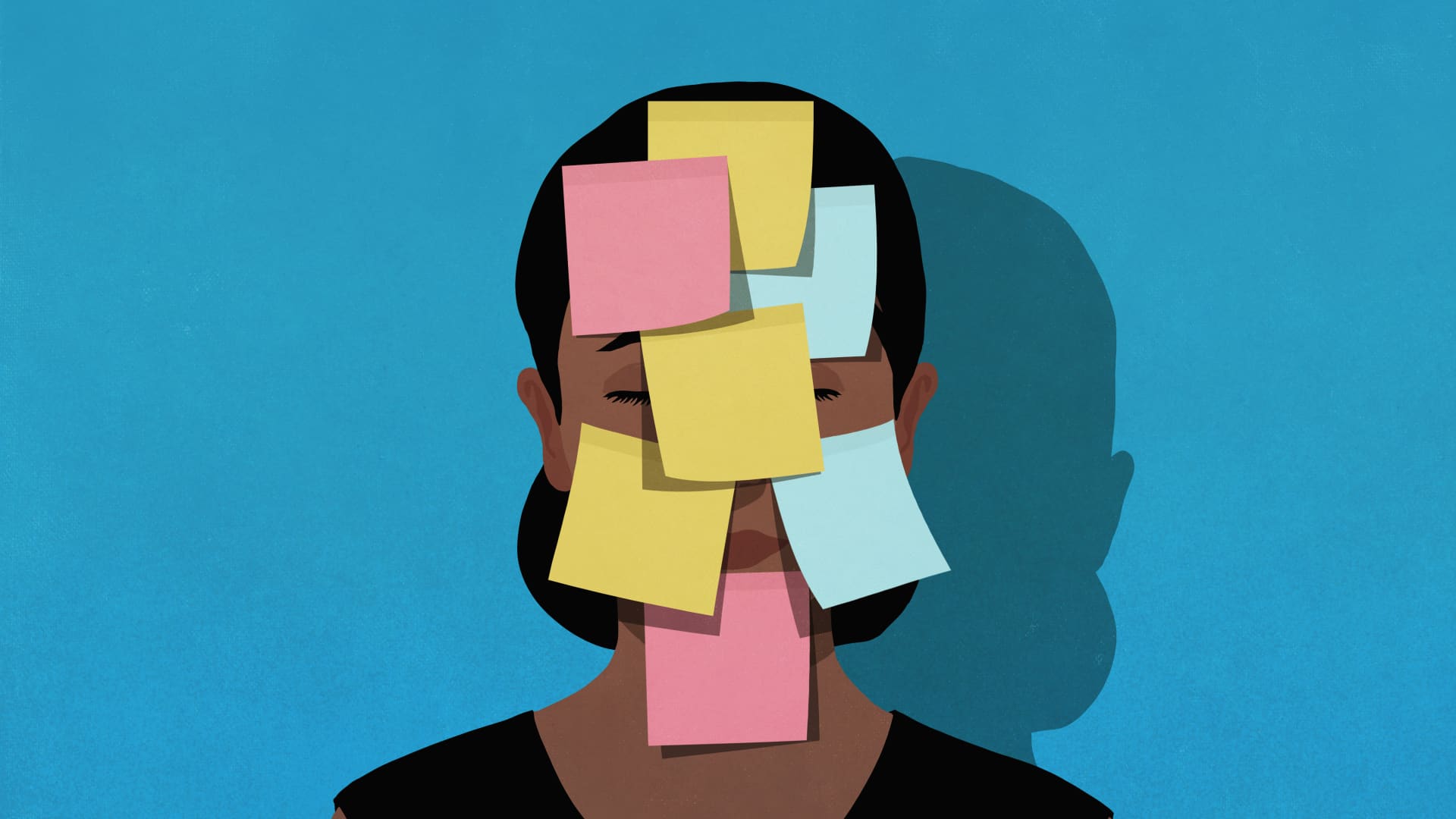A medical student once confessed to me that if he’s not on the verge of a breakdown, he feels like he’s not working hard enough. A CEO told me that waiting to pick up her kids from school makes her feel panicky, like she’s wasting valuable time. A software engineer shared that they skip meals sometimes for fear of falling behind.
As an instructor of psychology at Harvard Medical School and a therapist who treats anxiety and depression, I’ve encountered plenty of people who exhibit these and other signs of toxic productivity.
What is toxic productivity?
Productivity becomes toxic when you feel pressure to be productive at all times and prioritize your perpetual to-do list at the expense of your well-being.
While it isn’t an actual diagnosis, this mindset can take its toll on your physical and mental health, in some cases leading to anxiety, depression, burnout, insomnia, or self-esteem issues.
Here are five signs you’ve fallen into the toxic productivity trap — and what to do about it:
1. You are on the go all the time
People tell me they feel like there’s never enough time and that they’re perpetually rushing to get to the next thing. They can only slow down or relax once everything’s done.
This false sense of urgency can make you feel anxious, since the part of the brain responsible for detecting threats senses the urgency and misinterprets the signal as “danger,” activating a fight-or-flight response.
What to do about it: Try a simple pacing technique. Repeat “slow down” to yourself like a mantra for a minute or two. Then, take your time doing any activity and focus on breathing (five seconds in, five seconds out).
Doing this for three to five minutes can help manage anxiety and minimize the perception of urgency.
2. You feel guilty or ashamed about not getting enough done
Toxic productivity has a lot to do with what you feel when you haven’t checked things off, like guilt when you think you should’ve done something you didn’t and shame when you believe whatever you did wasn’t good enough.
Both can fuel the toxic cycle that drives you to push yourself to exhaustion, only to feel frustrated when you don’t have energy to do more.
What to do about it: Write your thoughts in a journal and examine them for patterns.
If you notice “double standard” thinking — when you hold higher expectations for yourself than others — use self-compassion and say: “I’m doing the best I can, just like everyone else.”
If you notice “perfectionist” or “all-or-none” thinking — the idea that if something isn’t 100% successful, it’s a failure — say: “Partial success still counts and what I’ve done is enough for today.”
3. Your self-worth is determined by how productive you are
Productivity levels fluctuate every day for reasons out of your control. But I’ve heard people tell themselves, “Today was a garbage day” or “I was completely useless today,” or conversely, “I’ve earned my downtime today.”
These thoughts might indicate an over-reliance on productivity for your sense of self-worth.
What to do about it: Monitor your internal dialogue and practice talking to yourself the way you’d talk to a friend or loved one, using your own name.
For example, I might say, “Natalie, you’re doing great today!” This technique is called “distanced self-talk” and research shows it can help you see yourself more objectively.
4. You find it difficult to relax or to have downtime
For many of us, productivity comes with praise and reward, which can release “feel-good” brain chemicals (like dopamine). You become “addicted” to the rush of busyness.
Over time, it gets harder to feel good when you aren’t pushing yourself to the extreme. You may feel agitated, irritable, or on edge when facing unscheduled time and pressure to fill it, instead of just enjoying it.
What to do about it: Try to reframe downtime as an opportunity.
If you arrive early to an event, for example, try closing your eyes and listening to the sounds around you. You’re still using that time productively, but in a restorative way.
5. You neglect self-care
If self-care seems like a waste of time, you might be experiencing toxic productivity. This includes neglecting exercise, sleep and rest, healthy meals, relationships, or time for play and pleasure.
It’s not uncommon for someone with this mindset to skip meals or even put off going to the bathroom or getting a glass of water.
What to do about it: Give yourself unconditional permission to relax every single day.
Many people tell me they crash from exhaustion at night, but still can’t fall asleep or don’t feel rested the next day even when they do. Restorative sleep requires feeling relaxed.
Create a bedtime routine that includes sleep-inducing activities, like listening to relaxing music, reading a novel, journaling, taking a bath or shower, dimming lights, cooling the air, or drinking herbal tea.
Dr. Natalie Christine Dattilo is a clinical psychologist and instructor at Harvard Medical School. She writes about mindset, motivation, and mental well-being and has been featured in major publications like The New York Times, The Wall Street Journal, and Forbes. Follow her on Instagram.
Want to land your dream job in 2024? Take CNBC’s new online course How to Ace Your Job Interview to learn what hiring managers are really looking for, body language techniques, what to say and not to say, and the best way to talk about pay. CNBC Make It readers can save 25% with discount code 25OFF.
Plus, sign up for CNBC Make It’s newsletter to get tips and tricks for success at work, with money and in life.
This story originally appeared on CNBC

